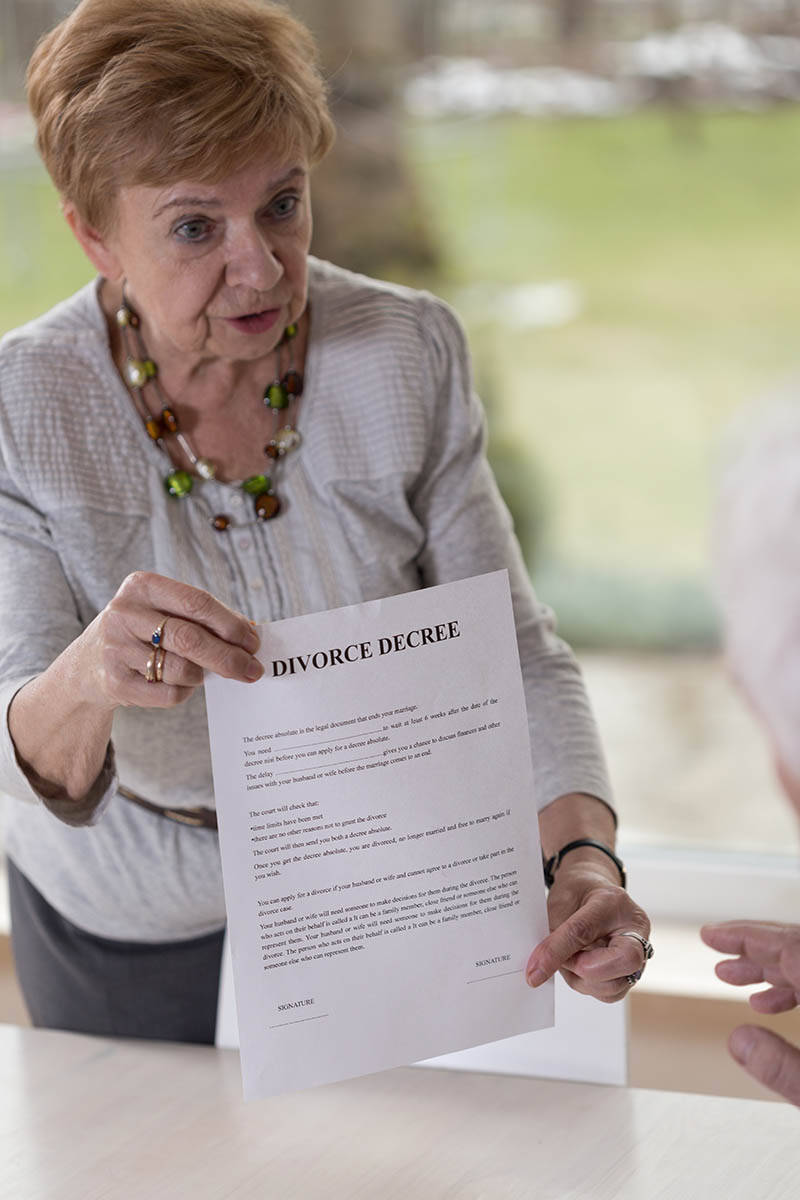FAMILY LAW
Call us today
for further advice on
DIVORCE
One of the main areas our solicitors are specialised in is assisting clients in getting a divorce in England or Wales. We do recognise that the process of divorce is very stressful and emotional. Our solicitors are well trained to manage sensitive matters that may arise during the process.
In order for you to commence divorce proceedings, you are required to be married for at least a year before you can apply for a divorce. Once the divorce process has been instituted, you are not free to remarry until the divorce process is complete, i.e. you have received the Decree Absolute.
A divorce can only be granted if the relationship is “irretrievably broken down”. There are five grounds that could be used to demostrate that the marrige is irretrievably broken down, including:
- Adultery
- Unreasonable Behaviour
- 2 Years Separation (if both agree)
- 5 Years Separation
- Desertion
We offer clients detailed and client tailored advice at an early stage to ensure that the reason for divorce is appropriate and all court documents are completed diligently to avoid delays in the process.
Further, durin this process our team of solicitors will assist in the following:
- Taking precise and detailed instructions so that we understand your needs
- Preparing petitions or responses to petitions
- Submitting relevant proceedings to courts on your behalf
- Corresponding with the relevant authorities throughout the proceedings on your behalf
- Advising on deadlines and stages of the proceedings from the start to the end
- Ensuring that even after the matter has been exhausted, our office remains as a point of call for any further advice.

DIVORCE KEY STAGES
The timescale from the divorce petition until the pronouncement of the Decree Absolute is likely to be at least 6 months.
Stage 1 – The Divorce Petition
A divorce petition can be lodged with the court at any time, provided you have been married for one year and either you or your spouse live or have lived in England and Wales during the last year.
An application is made to the Court with a declaration that the marriage has broken down irretrievably. This is done online via a Court portal and requires a payment of a Court fee of £593. Our legal fees can be found here. You can apply by yourself (sole applicant) or make a joint application with your ex-spouse (joint applicants).
If you apply as a sole applicant, a copy of your application will be sent to your spouse. They will then have 14 days to respond and will need to complete an Acknowledgment of Service. If the petition cannot be served on your spouse, a solicitor can assist with effecting service in a different way.
If you apply as joint applicants, one of you will be called the first applicant, and the other the second applicant. The first applicant is the party who will pay the Court fee and complete most of the application form. Both parties will need to file an Acknowledgment of Service.
If during the process you do not agree or feel frustrated by the other party, you can switch to a sole application but you will not be permitted to switch back to joint application again.
Stage 2 – Responding to a Divorce Application
Where your spouse filed for divorce against you, you will receive the divorce application within 28 days of it being issued by the Court. Extension of time to serve the petition is possible. You must file the Acknowledgement of Service within the 14-day deadline and if not sure, a solicitor can assist. It is advisable where there are complex issues to resolve them prior to commencing divorce proceedings.
Disputing an application for divorce is now very hard unless it is about the validity of the marriage or a dispute over jurisdiction.
Stage 3 – Cooling Off
After the Court has issued the application, 20 weeks has to pass before an application for a Conditional Order (Decree Nisi) can be made – this period cannot be reduced. A Conditional Order means that the Court has admitted your entitlement to a divorce. This does not mean the divorce is final. A final Order still has to be made.
Stage 4 – Conditional Order (Decree Nisi)
After the 20-week period has passed, your application for a Conditional Order will be considered by the Court and they will then provide a date for the Conditional Order to be made. This is normally issued electronically meaning there is no need to attend Court in person.
Stage 5 – Final Order (Decree Absolute)
After 6 weeks and one day from the date the Court makes the Conditional Order, you can apply to the Court for a Final Order. The Final Order legally ends your marriage and this has to be made within 12 months from the Conditional Order being made. If made after 12 months, the applicant has to explain the reason for this to the Court.
If you are the respondent, you can apply after a further 3 months if the applicant has not done so.
Call us today
for further advice on
Legal Separation
The legal separation allows you to live apart, without divorcing or ending a civil partnership.
The reasons for separation are similar to those of divorce such as adultery or unreasonable behaviour. However, the main grounds for divorce demonstrating that “the marriage is irretrievably broken down” do not need to be met.
Examples of legal separation include, for instance, religious reasons against divorce or when a couple has been married less than a year or simply requires time and space to work out if they would like to end the marriage.
Our team of solicitors will advise with diligence ensuring that you understand the process and have a peace of mind during the proceedings.
Call us today
for further advice on
Civil Partnership
A civil partnership is a legally recognised relationship available to same-sex couples or opposite- sex couples. A civil partnership can only be recognised if it is registered with the relevant authorities in the UK. Once registered it confers the same rights and responsibilities as a marriage. This means it can only be ended if one of you dies, or by applying to court to end the partnership legally. You can apply to end (‘dissolve’) your civil partnership if you have been in such a relationship for over a year. If you prefer not want to end the civil partnership, you can get a legal separation and live apart.
Our team of solicitors will assist you with any legal issues related to a civil partnership whether you are looking to form such a partnership or dissolve it. Contact us for further information.
Call us today

Unmarried Partners
Unmarried partners are described as a couple living together in a relationship similar to a marriage even if not married. Unmarried couples do not have the same rights as married couples. Therefore, it is advisable to consider entering into a contract with your partner to decide how money and property should be divided should you separate. These are known as “Separation Deeds” or “Cohabitation Contracts“.
Our team of solicitors will provide a detailed advice on your rights based on your specific circumstances. We will also assist with producing appropriate legal documents aimed to protect your interests should you decide to separate in the future.
Call us today
PRE-NUPTIAL AGREEMENTS
We advise and prepare pre-nuptial or pre-marriage agreements between the couples who wish to protect their investments acquired prior to their marriage.
Even though these agreements are not enforceable in the UK, they play an important role in determining the intention of the couple if the matter needs to be resolved in courts of law.
Our team of solicitors can assist to prepare these agreements and advise on all other rights stemming from such agreements.
